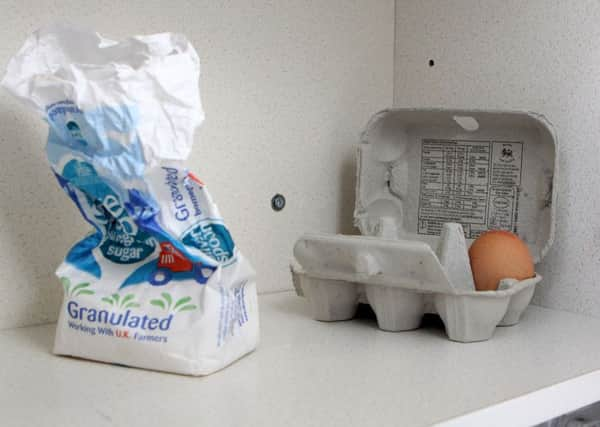Jo Pike: Where's the political appetite to tackle food poverty?


Over the last six months, he claims to have lost over two stones in weight because he has not been able to access enough food to meet his basic needs. I visited him later in the day and found very little food in his house and no gas on the meter. For John, cooking a meal is completely impossible.
Sadly, we hear more and more stories like this across many parts of Yorkshire, particularly in the inner cities where poverty has increased and now affects over 50 per cent of children in some parts of Leeds and Bradford.
Advertisement
Hide AdAdvertisement
Hide AdBut John does not live in an area typically associated with poverty and deprivation. In fact, he lives in a leafy, fairly affluent part of Shipley constituency where poverty is less overt and certainly less visible. John is part of a growing number of people affected by food insecurity. And it is a problem that has remained largely hidden across our region.
Food insecurity occurs when “an individual or household has insufficient or insecure access to food due to resource constraint”. It can be severe, meaning that people are literally without food for days, or mild to moderate, meaning that food supply is inadequate, uncertain or insufficient because of a lack of resources.
It affects people in work, people on benefits, people in fuel poverty, the elderly and parents who skip meals to make sure their children don’t go hungry. It is exacerbated by geographic isolation and affects those in rural parts of Yorkshire where people more are reliant on local convenience stores and access to affordable food is sometimes problematic.
To live with food insecurity means being unable to access enough food of a reasonable enough quality to meet basic nutritional needs in socially acceptable ways.
Advertisement
Hide AdAdvertisement
Hide AdFood insecurity is thought to be a growing problem affecting around eight million people in the UK alone. A recent report by The Food Foundation in 2016 estimated that over 4.7 million people in the UK are severely food insecure and regularly go a day without eating because of a lack of resources.
But food insecurity is also a hidden problem because individuals and households experiencing it often do not have referrals to food banks or other support services. They are on the brink, relying on friends and family, often eating poor quality food on a sporadic basis – skipping meals and making do.
So, while we know that food bank usage has increased across Yorkshire and the Humber from 65,059 food parcels in 2015/16 to 69,200 in 2016/17 these figures only tell us about people accessing Trussell Trust foodbanks.
What they do not tell us is the number of people accessing other food banks, or those who are surviving on the goodwill of others, accessing poor quality food opportunistically as and when they can.
Advertisement
Hide AdAdvertisement
Hide AdParliament is considering the Food Insecurity Bill presented by Emma Lewell-Buck MP which would commit the Government to measure and report on food insecurity. This is standard practice in countries such as the US and Canada.
Anecdotal evidence, proxy indicators and estimates all suggest that food insecurity is a growing problem that affects millions of people to varying degrees, but with more robust data, not only could we assess the prevalence of food insecurity, but we could begin to solve the problem. The aim of the Bill is simple – what gets measured gets fixed – and it is this simple aim that has attracted the support of over 100 cross party MPs ahead of its second reading in October.
It is the first step in making the problem visible and challenging the idea that hunger and food insecurity only happen the most deprived neighbourhoods. In fact, the evidence that we do have suggests that food insecurity is much more widespread than previously imagined. It indicates that many of us, even those living in apparently affluent parts of Yorkshire, are living and working with people like John whose struggle to eat goes on behind closed doors,
Jo Pike is a senior lecturer at Leeds Beckett University in childhood and education.